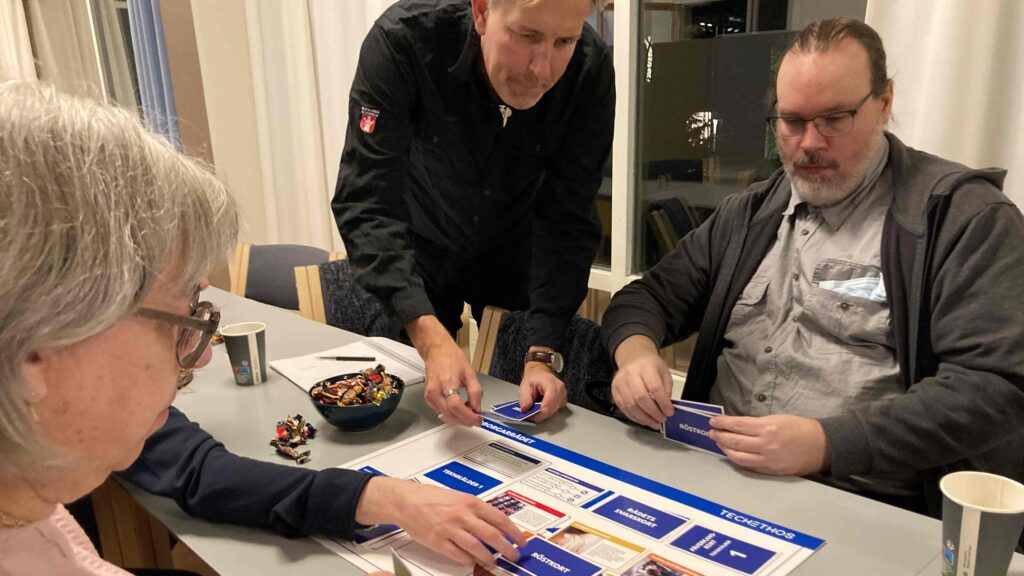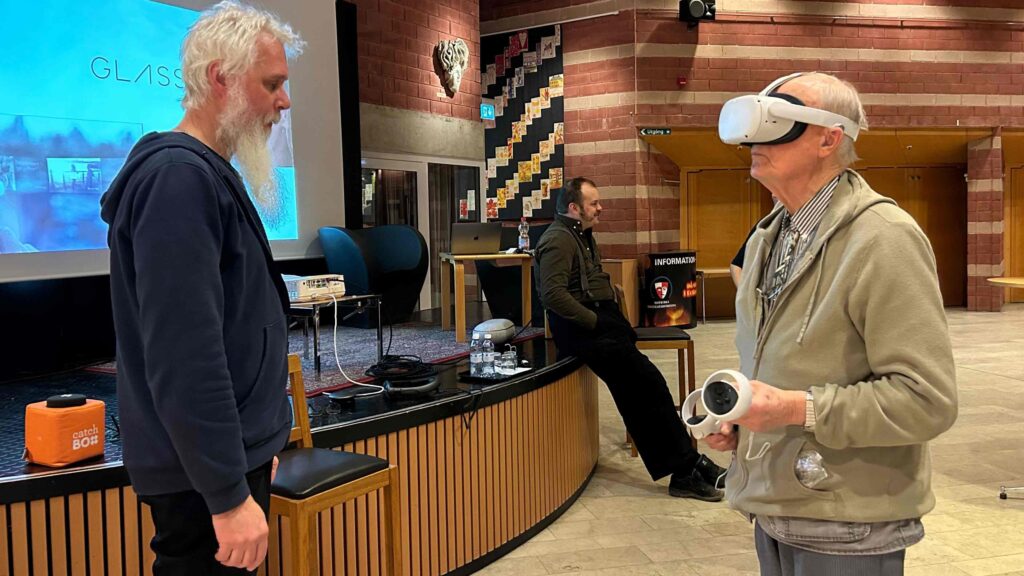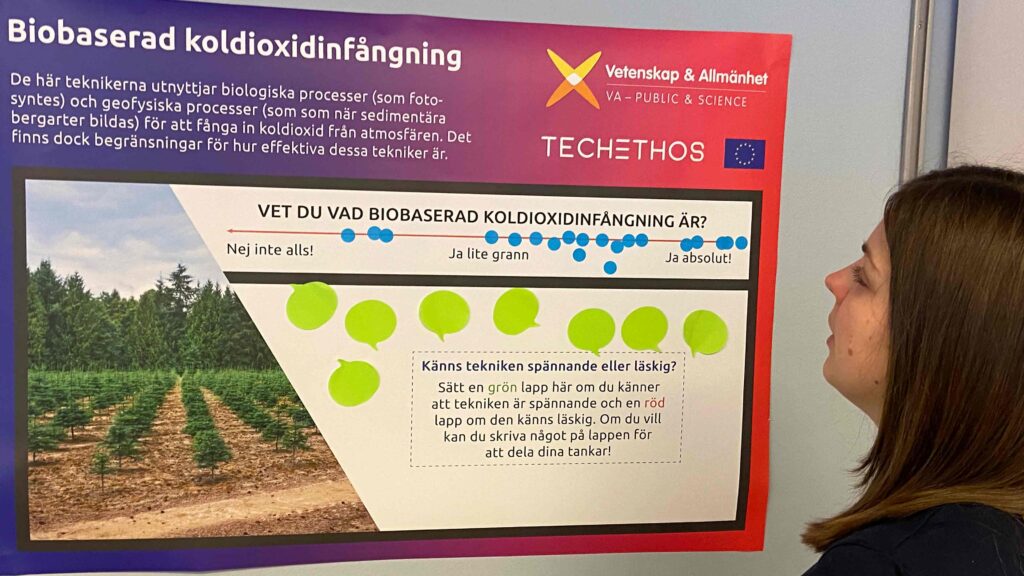Imagine being given the power to decide which technological developments should be part of tomorrow’s world? Hundreds of citizens were challenged to do this as part of a game played in six countries created by the EU TechEthos project to explore public attitudes and ethical concerns regarding future technologies. In Sweden, game workshops were run by VA in Stockholm and Botkyrka.

During the workshops, participants got to play The Tech Ethos game: Ages of Technology Impacts, a board game in which they were invited to sit on a Citizen World Council and decide what may be best for future generations and the planet. In each round, players were asked to discuss and agree on which technologies they would like to see further developed in their ideal future, taking into consideration the ethical implications as well as unforeseeable consequences of their choices. The objective was to capture societal attitudes, values and concerns to inform ethics guidelines being developed by the TechEthos project at European level. Each workshop was focused on one of three new and emerging technology families – Digital Extended Reality, Neurotechnologies and Climate Engineering.
Exploring future technologies in Sweden
In total, 75 people participated in the game workshops run in Sweden by VA throughout the spring:
The first workshop was held in Botkyrka’s town hall in the suburbs of Stockholm on the topic of neurotechnologies. Participants included people with disabilities from Botkyrka municipality along with students from Karolinska Institute. Researcher, Kathinka Evers, a Professor in Philosophy at Uppsala University, who leads the Human Brain Project, a ten-year European human brain research project, also provided an overview of her own research and the technologies explored in the game. These included neurostimulation that can be used to reduce pain and treat neurological disorders such as Parkinson’s disease, epilepsy and depression, neuroimaging technology to measure and monitor brain activities, Brain Computer Interfaces (BCIs) that can control prosthetic limbs using thoughts and relay sensory information back to users. While the potential of these technologies in a medical context was evident, the game led to interesting ethical discussions about their potential use in military applications, law enforcement and marketing.
I went through brain surgery due to epilepsy. I would have preferred to avoid having a piece of my brain removed.
Participant in the Swedish neurotechnologies workshop
Hallunda Folkets Hus was the venue of the second workshop exploring the future implications of digital extended reality and natural language processing. Participants from the local community discussed technologies such as virtual reality, digital twins, the metaverse and chatbots and their implications on many aspects of our daily lives including work, education, health, relationships and the environment.

Will everyone understand this technology? Even text messages and emojis are difficult to interpret and easy to misunderstand. Then think avatars in the metaverse…
The metaverse sounds exciting, imagine being able to go to the south of France and meet in a café in a virtual world.
Participants in the Swedish Digital Extended Reality workshop.
Which climate engineering technologies can best save the planet? Techniques for Carbon Dioxide Removal and Solar Radiation Management that could help to mitigate human-induced climate change were the focus of the third workshop, held at Stockholm University. Kevin Noone, a Professor in the Department of Environmental Science, and Alasdair Skelton, a Professor of Geochemistry and Petrology at the Department of Geological Sciences provided a useful introduction to the technologies prior to interesting discussions with participants about topics from environmental impact and protecting biodiversity to ensuring food security and responsibilities.

TechEthos game workshops were held in Austria, the Czech Republic, Romania, Serbia, Spain and Sweden. All the data collected during the workshops has now been analysed and the findings will be published shortly. You can read more about the process of co-creation of The Tech Ethos game: Ages of Technology Impacts in a TechEthos project report.
The next stage will be exhibitions in each of the six participating countries that will explore the ethics of each of these future technologies through scenarios. In Sweden, an exhibition on climate engineering will be hosted by Curiosum science centre in Umeå during the autumn.
